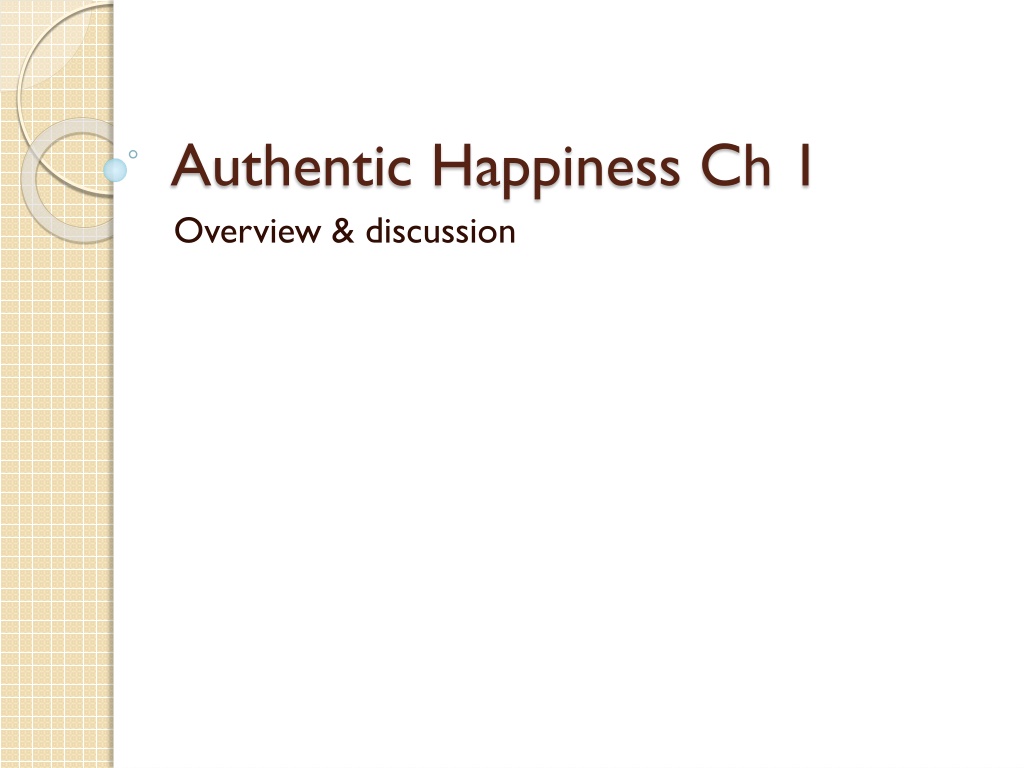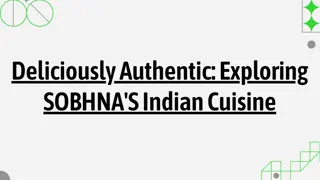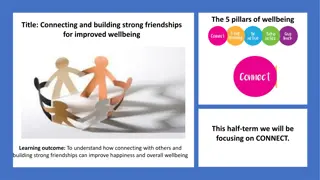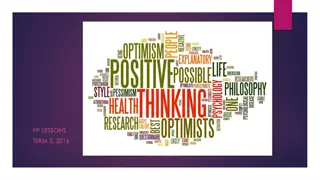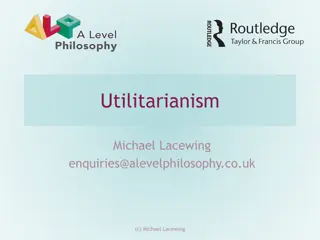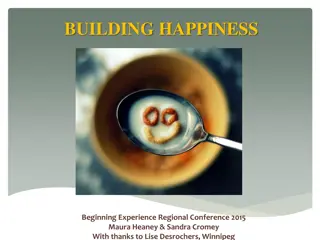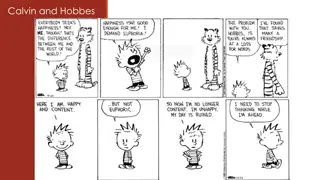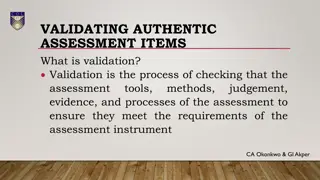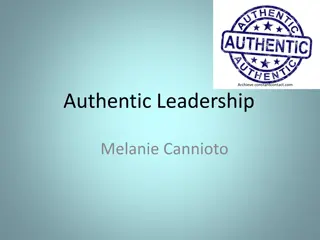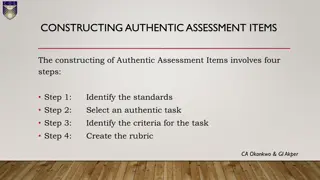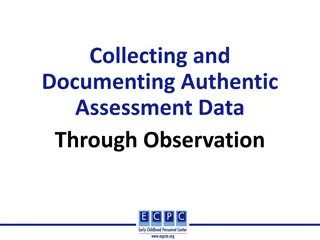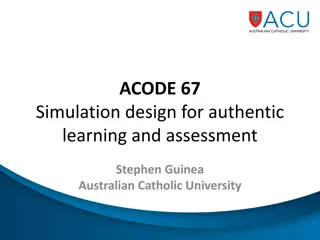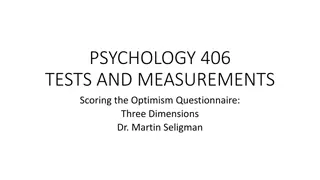The Power of Authentic Happiness: Understanding Seligman's Research
Explore the insights from the book "Authentic Happiness" by Martin Seligman, as it delves into the links between optimism, happiness, and longevity. Discover the limitations of hedonism, the importance of gratification over pleasure, the value of strengths across cultures, and Seligman's formula for a good life.
Uploaded on Sep 21, 2024 | 0 Views
Download Presentation

Please find below an Image/Link to download the presentation.
The content on the website is provided AS IS for your information and personal use only. It may not be sold, licensed, or shared on other websites without obtaining consent from the author. Download presentation by click this link. If you encounter any issues during the download, it is possible that the publisher has removed the file from their server.
E N D
Presentation Transcript
Authentic Happiness Ch 1 Overview & discussion
Why study nuns? Rules out the interference of some lifestyle factors Similar bland diet Similar work & sex life Easy to track Stay in the same job What conclusion did he draw? Optimism and happiness contributes to longevity
Seligmans project First of the book is about the momentary feelings of positive emotion: joy, flow, glee, pleasure, contentment, serenity, hope and ecstasy. He has 3 questions about these emotions: Why has evolution endowed us with positive feelings? What are the functions and consequences of these emotions, beyond making us feel good? Who has positive emotion in abundance and who does not? What enables these emotions, and what disables them? How can you build more and lasting positive emotion into your life?
Hedonism is not enough A hedonist wants as many good moments and as few bad moments as possible in his life. Seligman believes that adding up the total of our momentary feelings is a flawed measure of how good or bad our experience really is. Colonoscopy study (how it ends is important) Relying too much on hedonistic shortcuts leads to spiritual starvation Drugs, chocolate, casual sex, masturbation, TV Just fidgeting until we die (8).
Gratification versus Pleasure Afterglow of pleasure is weak compared to satisfaction of a philanthropic act. Read example p. 8 Gratification calls on your strengths to rise to an occasion and meet a challenge. Kindness is not accompanied by a separable stream of positive emotion like joy; rather it consists in total engagement and in the loss of self-consciousness. A stronger route to gratification & happiness is to find out what your positive traits are and develop them, work at it. Don t spend a lot of time correcting your weaknesses, just develop your strengths.
Strengths valued in most every culture include: Wisdom and knowledge Courage Love and humanity Justice Temperance Spirituality and transcendence Sometimes these emerge more in difficult times
Seligmans formula for a good life The good life is using your signature strengths every day to produce authentic happiness and abundant gratification (13). Finding meaning in life consists in attachment to something larger (14). Living for self-centered momentary pleasures (ie. eating, sex and shopping) will leave one empty.
Take the questionnaire (16) Write: Which parts of Seligman s argument seem correct to you? Which parts would you be reluctant to accept without a lot more information? What in your life do you think contributes most to your happiness questionnaire results? Share with a group Choose a note-taker, facilitator, and speaker
